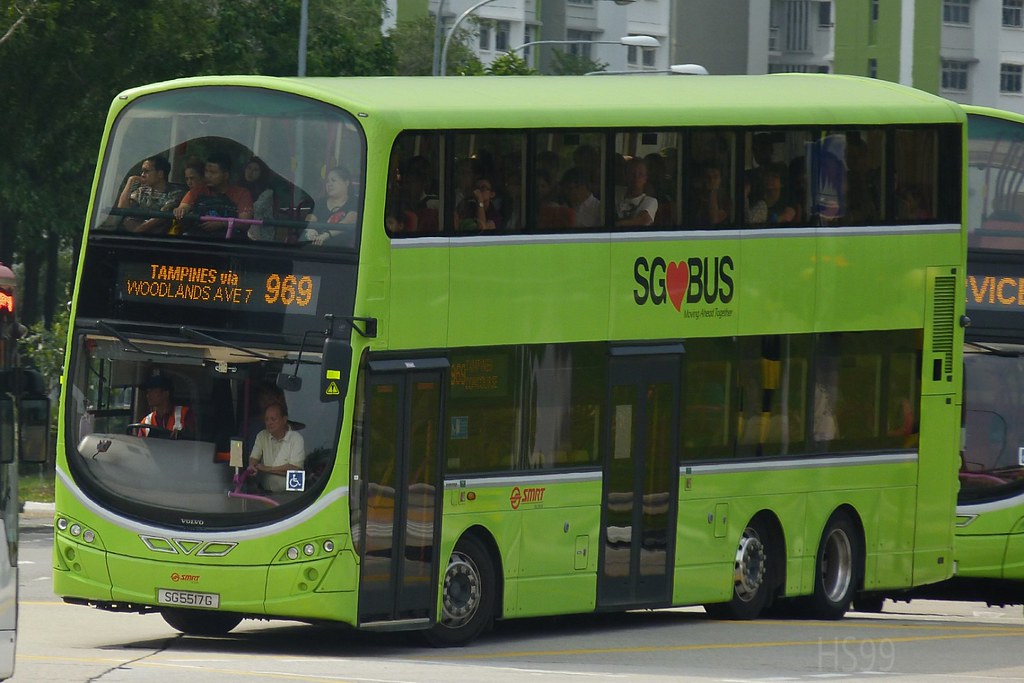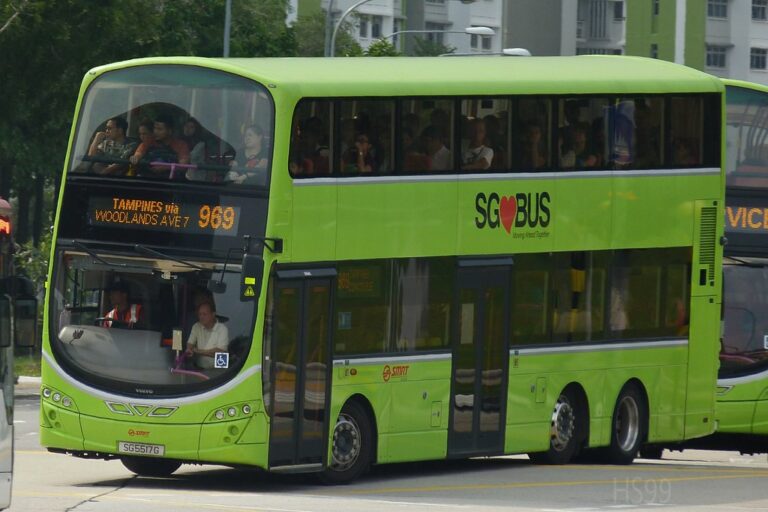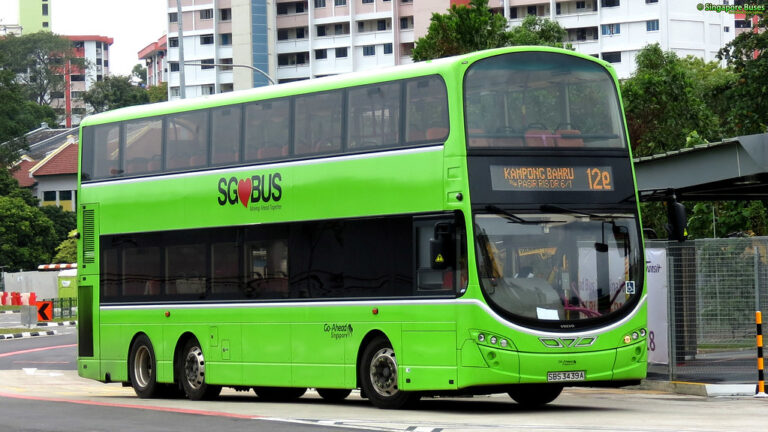The Go-Ahead Group (LON:GOG) today provided a trading update for the year ending 27 June 2020, ahead of the Group’s full year results scheduled to be announced on 10 September 2020.
· During the COVID-19 crisis, we have three priorities: to safeguard the health and wellbeing of our colleagues and customers; to play our role in society in challenging times; and to protect our business.
· Go-Ahead has a resilient business model, with limited exposure to changes in passenger demand, and government support in all divisions.
· We are providing vital regional bus services in England supported by an essential Government funding package, which the Department for Transport has indicated will continue beyond June 2020.
· London & International bus performance is robust through contracts in London, Singapore and Ireland.
· Resilient financial performance in UK rail franchises offset by weaker than expected German rail operation.
· The Group has strong fundamentals. It is cash generative and is expected to have around £200m* available in unutilised facilities and cash at the year end. The Bank of England has confirmed our eligibility for up to £300m additional financing through its COVID Corporate Financing Facility. Adjusted net debt to EBITDA is expected to remain within target range at the year end.
· With the impact of COVID-19 and support measures, overall Group operating profit for the year ending 27 June 2020 is now expected to be in the range of £63m to £75m (£54m to £66m on a pre-IFRS 16 basis).
* Underlying liquidity has improved since the half year ended 28 December 2019. However, the total cash available has reduced as a result of around £80m of UK rail cash currently being classified as restricted due to the terms of the EMA.
Go-Ahead Group Chief Executive, David Brown, said:“The last nine weeks have been unlike any other, and I am extremely proud of how my colleagues across the business have responded, keeping vital services running for other key workers and increasing service levels to provide safe travel as people return to work. I thank them all for the part they are playing.
“Go-Ahead is an extended family of 30,000 people and our priority is safeguarding their health and wellbeing. Our thoughts are with our colleagues who are currently unwell as a result of COVID-19, and the families and friends of our people who have tragically lost their lives.
“Our businesses are key parts of the communities they serve and they have been fundamental in supporting these communities through this crisis. This support has come in many forms; we have amended timetables to align with hospital workers’ shift patterns, run shuttle services to hospitals and supported victims of domestic abuse to reach safe places. We have also supported efforts in tackling the crisis by bottling and distributing hand sanitiser for key workers, delivering food packages to those in need, and transporting medical equipment.
“We are pleased that governments have recognised the importance of essential public transport networks. By providing financial support they are enabling the delivery of vital transport links for key workers and supporting the recovery of our communities.
“While none of us know what the coming months will bring, I have no doubt that public transport will continue to play a critical role in society, supporting our economies and tackling climate change long into the future. Go-Ahead has a strong track record of delivery, and with a high proportion of secured revenues we are well positioned to protect our business for the long term.”
Our markets
Regional bus
In recent weeks we have been operating between 40% and 50% of normal scheduled mileage, carrying around 10% of usual passenger numbers, creating a misalignment between revenue and our cost base. While we have taken measures to reduce costs wherever possible, financial support is crucial to cover the costs of providing essential services.
On 3 April 2020, the Department for Transport (DfT) announced a 12-week funding package of £167m providing support to bus operators delivering vital services in England from 17 March until 8 June 2020. On 20 May 2020, the DfT confirmed that funding will continue beyond June to support the increased levels of bus services that will be needed as part of the Government’s COVID-19 recovery strategy. Details of the arrangements are not yet known.
Approximately 65% of the regional bus cost base relates to employee costs. We have utilised the Government’s Coronavirus Job Retention Scheme to furlough around 50% of colleagues in this part of the business. We welcome the announcement of the extension of this scheme until October 2020 and will continue to utilise it for our colleagues as needed.
In our regional bus business around 30% of revenue is derived from contracts and concessionary income. In the vast majority of cases, local authorities across the country have continued paying for these services at pre-crisis levels. The Bus Services Operators Grant, relating to fuel duty, is also being paid at the same levels as before the COVID-19 outbreak in the UK.
For the full year ending 27 June 2020, we expect operating profit for the regional bus division to be in the range of £17m to £21m (on both a pre and post-IFRS 16 basis). This is based on the assumption of continued Government funding during the rest of June. We also expect further one-off non-cash restructuring costs in the second half as we address underperforming areas of this division.
London & International bus
As COVID-19 restrictions affected passenger volumes, transport authorities in London, Singapore and Ireland responded by adjusting service levels as appropriate.
In London, where we are currently operating around 75% of normal service levels, revenue remains at pre-COVID-19 levels with variable cost savings being returned to Transport for London (TfL). We continue to earn Quality Incentive Contract (QICs) income for the services we are operating.
In Singapore and Ireland, services have been reduced to around 80% and 90% of contracted levels respectively. However, we do not anticipate this to have a material impact on the financial performance of the division in the full year.
We continue to work closely with our transport authority clients to prepare for service levels being increased in line with government guidance.
For the full year ending 27 June 2020, we expect operating profit for the London & International bus division to be in the range of £46m to £50m (£45m to £49m on a pre-IFRS 16 basis).
Rail
Both GTR and Southeastern franchises are currently operating around 75% of typical service levels, as specified by the DfT.
GTR
Following the DfT’s announcement on 23 March 2020, regarding the introduction of an Emergency Measures Agreement (EMA) to support rail operators until September 2020, GTR has been operating under these terms. The EMA has a maximum management fee of 2% of the pre-pandemic cost base, back dated to 1 March 2020, comprising a management fee of around 1.5% and a 0.5% performance-related payment. For the period it covers, initially until September 2020, the EMA contract restricts cash payments from the train operator to the owning group. While GTR was already a management contract, the new terms remove exposure to changes in the cost base and ancillary revenue such as car parking and retail commission.
Southeastern
As previously reported, Southeastern began operating an 18-month (plus six-month extension option) direct award contract (DAC) on 1 April 2020 running to 16 October 2021. The terms of this new management contract mirror those of the EMA introduced across the rail industry, but for the duration of the DAC. As with GTR, cash restrictions are also in place under the terms of Southeastern’s contract.
Germany
We are currently operating around 70% of contracted services in our German rail business, having operated around 55% throughout April. We expect to resume a full-service during June.
As reported in our half year results, the early stages of our rail contracts in Baden-Württemberg have been challenging. Issues around availability and reliability of rolling stock, and driver shortages have impacted operational performance and service reliability, resulting in penalties and unplanned costs being incurred.
While the reduced service levels in response to COVID-19 have enabled us to deliver strong operational performance during this time, the underlying challenges in this business remain, particularly driver numbers which remain below the levels required to operate a full service, and the pandemic has inevitably delayed our driver training programmes.
While we are now operating with expected levels of rolling stock, progress in recovering losses associated with the late delivery of trains from the rolling stock provider has been slower than anticipated. As a result, we now expect a more material loss from the German business for the full year.
In light of ongoing challenges, a comprehensive review of our German rail business is underway including an assessment of longer-term financial expectations.
Norway
As specified by our transport authority client, we are currently operating around 80% of contracted services in our Norwegian rail business. This has increased from around 50% in April, as restrictions begin to be lifted in Norway. While this is a revenue risk contract, the Norwegian government has supported the rail industry with a 12-week funding package back dated to 11 March, expected to cover the lost revenue for this period. Discussions are underway regarding ongoing funding to support increasing service levels while demand remains supressed.
Rail division financial expectations for 2019/20
For the full year ending 27 June 2020, we expect operating profit for the overall rail division to be in the range of £nil to £4m (-£8m to -£4m on a pre-IFRS 16 basis), with the loss in German rail offsetting profit from the UK rail business.
Cost reductions
Wherever possible we have sought to minimise costs and cash outflows. Actions taken include suspension of the interim dividend, a 20% reduction in Board members’ salaries and fees, utilisation of government job retention schemes, a freeze on all discretionary expenditure and restrictions on capital spend (see below).
While it has been necessary to reduce supplier services in line with our own service reductions, we have adopted a structured and fair process, in line with our Sustainable Supply Chain Charter. We have taken active steps to protect our essential supply chain, including continuing to pay suppliers in line with the Prompt Payment Code.
Capital expenditure
Where possible, we have frozen capital expenditure and, we have chosen to lease rather than buy necessary vehicles to reduce cash outflows where appropriate. We had previously guided to full year capital expenditure of £140m but now expect this to be closer to £90m. Looking to next year, we have greater flexibility around capital expenditure, principally in the regional bus business.
Fuel hedging
In line with our policy, we were fully hedged for FY20 before the COVID-19 outbreak. Based on expected volumes, which are regularly reviewed in light of changing demand and mileage, no further hedging is expected to be required for FY21. We will continue to review our monthly hedging programme in light of current low oil prices and expected requirements.
Liquidity and bank covenant
The Group has no debt maturities ahead of 2024. We have a strong balance sheet and good liquidity with adjusted net debt expected to be in the region of £980m (around £350m on a pre-IFRS 16 basis) and unutilised facilities and cash of around £200m at the year end. Underlying liquidity has improved since the half year ended 28 December 2019. However, the total cash available has reduced as a result of UK rail cash of around £80m currently being classified as restricted due to the terms of the EMA.
We maintain a positive dialogue with our finance providers and keep our current facilities under review. The Bank of England has also confirmed our eligibility for up to £300m additional financing through its COVID Corporate Financing Facility.
Through a combination of available headroom on our committed facilities, management action, and revenue protection through contractual arrangements and government support, the Group is well placed to withstand the challenges this crisis presents.
Following recent reviews, Moody’s and S&P have reaffirmed their credit ratings at Baa3 and BBB-, respectively. Both consider the outlook to be stable.
Our bank covenant, in respect of our revolving credit facility, is 3.5 times adjusted net debt to EBITDA (on a pre-IFRS 16 basis). While this ratio is expected to increase from the 1.53 times we reported for the half year ended 28 December 2019, we anticipate remaining within our target range of 1.5 to 2.5 times at the year end.
Dividend
On 23 March 2020, the interim dividend of 30.17p was suspended in light of the uncertainty resulting from COVID-19. The Board acknowledges the importance of dividends to our shareholders, which include charities, educational institutions and pension funds, and understands the part dividends play in supporting society and national economies. The Board will continue to assess the Group’s ability to recommence returns to shareholders, and a further update will be provided with the announcement of the full year results in September 2020.
IFRS 16
The half year results reported on 12 March 2020 were the first set of Go-Ahead results reported on an IFRS 16 basis. At the point of reporting, Southeastern leases fell outside of the scope of the standard as there were fewer than 12 months remaining on the contract term. However, following the award of a new contract for a minimum of 18 months, Southeastern’s lease obligations now fall within scope. This increased right-of-use assets by around £250m as at 1 April 2020.
Our people
Our priority is safeguarding the health and wellbeing of our colleagues around the world. We are following guidelines from local and national governments, the World Health Organisation and relevant advisory bodies, such as Public Health England, as well as engaging with our colleagues and union representatives to ensure appropriate measures are taken.
Colleagues have been provided with additional protective equipment in line with government guidelines and measures have been taken to minimise or remove cash handling. We have implemented enhanced cleaning of vehicles and other workplaces, and have introduced social distancing measures, including the provision of information to help our colleagues and customers adhere to government guidelines.
Outlook
In all of our geographies material uncertainties remain around the easing of restrictions and the implications this will have on public transport usage. The quantum and duration of government support measures, particularly in our regional bus business, also remains uncertain. Accordingly, we are not in a position to provide guidance in relation to the 2020/21 financial year or beyond at this stage.








































